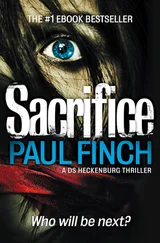Paul Finch - Stronghold
Здесь есть возможность читать онлайн «Paul Finch - Stronghold» весь текст электронной книги совершенно бесплатно (целиком полную версию без сокращений). В некоторых случаях можно слушать аудио, скачать через торрент в формате fb2 и присутствует краткое содержание. Жанр: Ужасы и Мистика, на английском языке. Описание произведения, (предисловие) а так же отзывы посетителей доступны на портале библиотеки ЛибКат.
- Название:Stronghold
- Автор:
- Жанр:
- Год:неизвестен
- ISBN:нет данных
- Рейтинг книги:3 / 5. Голосов: 1
-
Избранное:Добавить в избранное
- Отзывы:
-
Ваша оценка:
- 60
- 1
- 2
- 3
- 4
- 5
Stronghold: краткое содержание, описание и аннотация
Предлагаем к чтению аннотацию, описание, краткое содержание или предисловие (зависит от того, что написал сам автор книги «Stronghold»). Если вы не нашли необходимую информацию о книге — напишите в комментариях, мы постараемся отыскать её.
Stronghold — читать онлайн бесплатно полную книгу (весь текст) целиком
Ниже представлен текст книги, разбитый по страницам. Система сохранения места последней прочитанной страницы, позволяет с удобством читать онлайн бесплатно книгу «Stronghold», без необходимости каждый раз заново искать на чём Вы остановились. Поставьте закладку, и сможете в любой момент перейти на страницу, на которой закончили чтение.
Интервал:
Закладка:
"What I have, my lord, is experience. Remember Bayonne?"
Corotocus recalled it well; his mouth crooked into a half-smile. Others recalled the incident at Bayonne too, though not so fondly. Several of the earl's knights preferred not to dwell on it at all, for it had flown in the face of everything chivalrous they had ever been taught. On that occasion they had been the besiegers rather than the besieged.
It was in the early days of the Gascon war and Bayonne Castle on the River Nive had been captured by French forces. Earl Corotocus led the English army that subsequently surrounded it. The following siege was a prolonged, tiresome affair, both sides suffering from hunger and foul weather. On regular occasions Abbot Julius, of the Sainte Martine monastery high in the foothills of the Pyrenees, had come graciously down and been allowed entry to the castle by the English, to sing psalms for the embattled French. However, the earl's spies soon informed him that Abbott Julius was a cousin of Count Girald, who was commanding the French force, and was passing intelligence about the English strength and disposition. Not only that, he was organising a local resistance movement on behalf of the besieged and offering gold to pirates if they would intercept English galleys, bringing much-needed supplies to the nearby port.
In response, Earl Corotocus despatched a small group of handpicked men, Ranulf and his father among them, who disguised themselves as pilgrims en route to Compostela, and trod the dusty mountain road to Sainte Martine on foot. Only after begging water and a bed for the night, and finally being admitted to the monastery, did they throw off their rags and cowls, to reveal mail, swords and daggers. The monastery was sacked and burned, its lay-brothers slain, its monks — including Abbott Julius — taken as captives of war. A short while later, Earl Corotocus brought these prisoners before the walls of Castle Bayonne, and stood them on ox-carts with nooses around their necks. One word from him, he shouted, and the carts would be hauled away and the brethren left dangling. Inside the castle, Abbot Julius's cousin, Count Girald, had had no option but to signal his surrender.
Though it was well known that Earl Corotocus waged war in the most cunning ways, he was widely reviled for this ignoble act. Complaints were made against him to King Edward even from some on the English side — especially from those paragons of courtly virtue, William Latimer and John of Brittany. King Edward replied that conflict was always a hellish affair, but on this occasion particularly so as it was a straight contest between he and Philip IV of France, one anointed monarch versus another. With the stakes so high, he would not be held accountable for the "improvisational skills of his commanders". A short time later, when Pope Celestine excommunicated Earl Corotocus, King Edward sent an embassy to the papal court at Naples to have it lifted.
"What do you propose?" the earl said.
"Can we talk in private?"
The earl nodded. They crossed the roof and descended into a stairwell.
"I don't know how alert these walking dead are," Ranulf said. "But I don't think we can afford to take chances. Only a handful of men must go — five at the most. I don't even think it wise to take our best. It'll be perilous, and how many will return I don't know."
"All the more courageous of you to offer to lead it, Ranulf." The earl regarded him carefully, almost suspiciously.
"You're wondering if I really have lost my mind?"
"You wouldn't be the only man in this garrison who had."
"My lord, we face an enemy the like of which has never been seen. An enemy that can't be killed. An enemy that threatens our very souls, or so we assume. I'd be lying if I said that I think any of us will survive this siege. Could any man think rationally in these circumstances? I don't know. But we can only do — as my father used to say — what we can do."
"Tell me your plan," the earl said.
"There are plenty of storages sheds in the courtyard. At the very least, we have rope, we have paint, we have barrels of pig grease."
"And?"
"I suggest that whoever goes out there wears minimum clothing. I once heard a tale of how a Roman army was overwhelmed by a Germanic tribe. The Germans came through the benighted forest naked and painted black from head to toe. They were invisible until they struck the Roman camp."
The earl looked sceptical. "And this will fool our dead friends?"
"As I say, I don't know how alert they are. Do they think the way we think, can they even see as we do? But we must prepare as if they can. We must also grease ourselves, so that if they grab us we can still get free. It's all about speed, my lord. So much so that I recommend we don't load ourselves with weapons. We must break the scoop-thrower and get back inside the castle as fast as possible."
"And how would you even get out of the castle, let alone get back inside?
"When I was in the Keep before, I noticed the garderobe chute. It must lead down to an underground sewer. I suspect it passes beneath the east bailey and feeds into the moat. We can exit that way."
"An underground sewer?" The earl raised an eyebrow. "It may be a tight squeeze."
"In which case, the pig-grease will come in useful."
Corotocus pursed his lips as he pondered. "Supposing you succeed, how do you expect to get back inside? Climbing the garderobe chute? How high is it?"
"If we hang ropes down, with knots and loops tied in them, all it will need is for you to have a number of men standing by. The moment we're in position, you can pull us up. We won't need to climb."
The earl now smiled. Irregular warfare was always to his liking. "I think I'm in favour of this plan, Ranulf. But who will you take?"
"Volunteers initially. If there aren't enough forthcoming, as Navarre said… we'll draw lots."
"I want Garbofasse to go with you."
Ranulf tried not to show how much this disconcerted him. "You don't trust me, my lord?"
"I trust the men less. If you get beyond this ring of dead flesh, what's to stop those worthless dogs fleeing for their lives? You'll be there, but you'll be alone. With Garbofasse, you can control things better."
Ranulf had no particular dislike for Garbofasse, aside from him being the leader of a gang of murderers. And the mercenary captain could not really be described as the earl's man the way Navarre or du Guesculin could. But he was hardly someone Ranulf could trust. All of a sudden, the extremely difficult task Ranulf had set himself looked nigh on impossible.
CHAPTER TWENTY-ONE
That evening was a pleasant one, redolent of spring. Though cold, the air was clear and fresh. The sky was pebble-blue, but faded to indigo as dusk fell, and to fiery red as the sun finally settled.
At the far end of the causeway, the siege-tower was almost completed and as ominous an object as any man there had seen in all his years of war. The dead still worked in industrious and eerie silence. The only sound was the tapping of hammers as wheels were attached to the great monolith. Its front and sides were shod almost completely with iron plate. Where the iron had run out, the gaps were covered by shields purloined from the English. As the last vestige of sunlight melted into the west, a single ray shot across the land and burnished the object with flame. Several of the dead, clambering back and forth upon it like beetles, also glinted as it caught their pieces of mail.
The English watched tensely, expecting the tower to immediately roll forth along the causeway. But though the teams of oxen had now been brought from the Gatehouse, no attempt was made to yoke them in place. Gradually, the hammering ceased, and as darkness fell the dead withdrew into their fastness. A legion of them still watched from the western bluff and droves more remained on the parapets of the curtain-wall. If other monstrosities were still scouring the Grogen hinterlands for munitions, there was no sign of it. All were stiff and still as the mannequins that had first confronted the English on their arrival here. As night descended, and cloaked them from view, even their mewling and moaning faded. Soon, only the stink of mildewed flesh bespoke their presence.
Читать дальшеИнтервал:
Закладка:
Похожие книги на «Stronghold»
Представляем Вашему вниманию похожие книги на «Stronghold» списком для выбора. Мы отобрали схожую по названию и смыслу литературу в надежде предоставить читателям больше вариантов отыскать новые, интересные, ещё непрочитанные произведения.
Обсуждение, отзывы о книге «Stronghold» и просто собственные мнения читателей. Оставьте ваши комментарии, напишите, что Вы думаете о произведении, его смысле или главных героях. Укажите что конкретно понравилось, а что нет, и почему Вы так считаете.











![Paul Finch - A Wanted Man [A PC Heckenburg Short Story]](/books/702381/paul-finch-a-wanted-man-a-pc-heckenburg-short-sto-thumb.webp)
